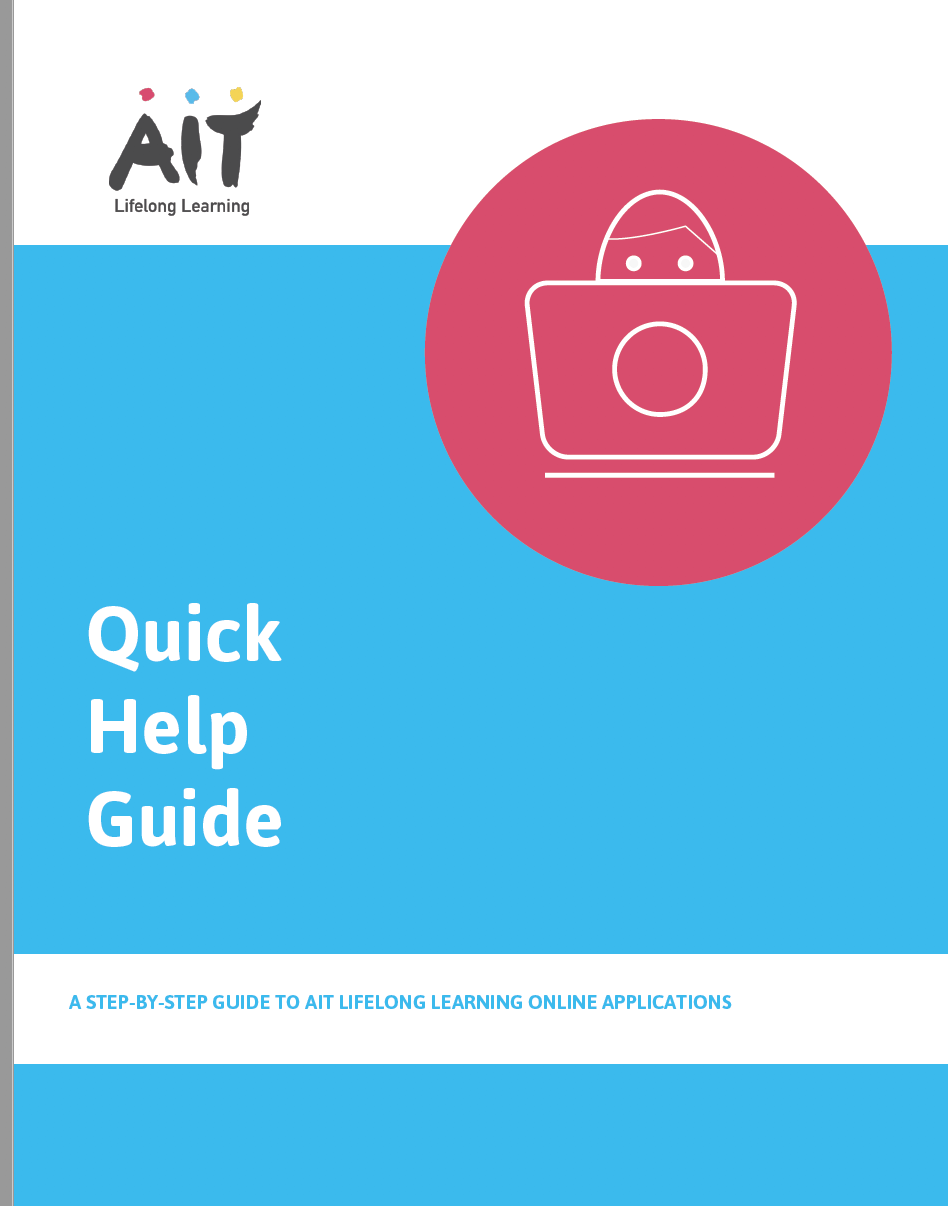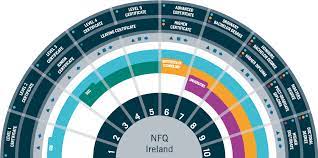[divider style=”none”]
[/divider]
[one_half valign=”top” animation=”none”]
[toggle title=”Is Flexible Learning For Me?” state=”off” style=”solid”]
Flexible Learning is the term used in TUS Midlands to encompass the range of part-time/evening/on-line/blended learning programmes which are offered in the university. Other terms which are often used include Life Long Learning or Adult Education. Flexible Learning is for you if
-
You want to upskill or gain additional knowledge in a specific area relevant to your work and can only study on a part-time basis
-
Wish to gain a third level qualification but can only complete a programme on a part-time basis due to other commitments
-
Want to learn about a new area/develop a new skill out of general interest, not related to your career or work
TUS Midlands offers a wide range of programmes in its Flexible Learning portfolio across all of its different programme areas.
[/toggle]
[toggle title=”What is the difference between on-line and blended learning?” state=”off” style=”solid”]
In this technological era, e-learning is increasing in popularity and one of the approaches used to implement this concept is Blended Learning. Blended Learning is a combination of two approaches to learning: traditional classroom learning and online learning.
So, through Blended Learning, you’ll have the advantage of the best of both worlds, as you combine the flexibility of online learning with the opportunity to interact face-to-face in the classroom.
An on-line programme normally has over 80% of the content delivered fully on-line and there is limited actual ‘class time’ where students meet each other, and their lecturer(s) in person.
Blended learning programmes can have between 20%-80% of the content delivered on-line with the remaining involving either lectures/practicals/tutorials delivered in TUS Midlands.
[/toggle]
[toggle title=”What does ‘Level’ mean in the Course description?” state=”off” style=”solid”]
The Level of your award links to the Irish National Framework of Qualifications (NFQ). This is a nationally agreed framework which allows education providers to match the level of their academic programme with the demands of the qualification.
The Level also reflects the amount of independent work and analysis that you are expected to do with this increasing as you move up the various levels. Details of the NFQ can be found by clicking on the image below.
Normally you can consider that a programme/module at:-
-
Level 6 – will have content and being delivered in a way that is similar to that in a first or second year of a 4-year degree programme
-
Level 7 – will have content and being delivered in a way that is similar to that in third year of a 4-year degree programme
-
Level 8 – will have content and being delivered in a way that is similar to that of a final year of a 4-year degree programme
[/toggle]
[toggle title=”What are ECTS Credits?” state=”off” style=”solid”]
The European Credit Transfer and Accumulation System (ECTS) is a credit system designed to facilitate the movement of students between different countries (https://ec.europa.eu).
ECTS credits are based on the learning achievements and workload of a programme. Therefore, a student can transfer their ECTS credits from one third-level institution to another so that the credits are added up to contribute to an individual’s degree programme or training.
ECTS also makes it possible to merge different types of learning, such as third level and work-based learning, within the same programme of study or in a lifelong learning perspective. ECTS credits represent the workload and defined learning outcomes of a given programme.
[/toggle]
[toggle title=”What are the Entry Requirements for Department of Lifelong Learning Programmes?” state=”off” style=”solid”]
If you are considering a programme, you will find the programme’s minimum entry requirements on the programme page on the web site. There are different minimum entry requirements for individual programmes. If you need any additional information or have a question in this regard, please email [email protected] or contact us directly on 090 6483050. You will be required to provide evidence of previous qualifications in the form of a Results Transcript from the educational institute
[/toggle]
[toggle title=”How do I apply for a programme in the Department of Lifelong Learning?” state=”off” style=”solid”]
Click HERE to apply online.
Please refer to our Quick Help Guide for step by step instructions.

[/toggle]
[toggle title=”What are the Programme Fees and Payment Plan Option?” state=”off” style=”solid”]
All programme fees are stated in the relevant programme details in this prospectus. Except where stated programme fees cover the cost of tuition only and refer to the programme or academic year as appropriate.
Some programmes require students to pay additional registration/examination fees separately (and in some cases directly) to the accrediting professional body. This is noted in the programmes details in this prospectus. It is the responsibility of each student to ensure that such fees are paid on time. The Department of Lifelong Learning cannot be held responsible in instances where this does not occur.
Payment Plan Option
We encourage all students to pay their programme fee in full on registration, however in some cases we recognise that this may not be possible. To accommodate this we have introduced a structured payment plan option that is only available on programmes where the programme fee exceeds €1000. The structured payment plan is as follows:
Payment One
Deposit of €550 upon online registration on or before September 12th 2022
Payment Two
November 7th 2022, €600
(or balance of fees if less than €600 outstanding)
Payment Three
January 23rd 2023, €600
(or balance of fees if less than €600 outstanding)
Payment Four
March 6th 2023, €600
(or balance of fees if less or more than €600 outstanding)
In order to avail of the structured payment plan option, applicants must complete the Online Registration process via the TUS website.
Students may make earlier payments, and may pay more than the required amount by each date if they so wish. Students who do not adhere to the structured payment plan option, (for example do not pay the required amount by the required date) may have their student services revoked, may not be allowed attend further classes or attend examinations until their account is back in good financial standing. Students will not receive notification of any results or transcripts if they have fees outstanding.
For further details on the payment plan and to discuss your eligibility please contact us.
MBA Payment Plan
Tuition fees will be €5,000 per academic year.
There are two payment methods available:
-
Full fees of €5,000 on registration
-
Deposit of €860 on registration, followed by 9 monthly payments of €460 by the first of each month, commencing 1st October 2022 and finishing 1st June 2023.
[/toggle]
[/one_half]
[one_half_last valign=”top” animation=”none”]
[toggle title=”What are Springboard+, ICT Skills, Modular Skills and Human Capital Initiative funded programmes?” state=”off” style=”solid”]
Springboard+, ICT Skills, Modular Skills and Human Capital Initiative funded programmes are delivered by Athlone IT in a wide variety of academic disciplines from levels 6-9. These programmes are available, with minimum eligibility and entry requirements, to both employed and unemployed persons. All level 6 programmes under these funding initiatives are free to both employed and unemployed persons. For programmes at levels 7-9, these programmes are free to unemployed persons and for employed persons, you are required to pay 10% of the programme fee.
There is a range of part-time (online and blended) programmes from certificate to master’s degree levels – levels 6 to 9 on the National Framework of Qualifications (NFQ). Current available programmes at TUS Midlands are part-time and last for one year or less.
Springboard+ is co-funded by the Government of Ireland and the European Social Fund as part of the ESF programme for employability, inclusion and learning 2014-2020.
![]()
[/toggle]
[toggle title=”What is Zoom?” state=”off” style=”solid”]
Zoom is the virtual classroom platform that we use to deliver our online lectures.
Download Zoom HERE
You will receive a ZOOM link to your online classroom which you will use each week to attend your online classroom. Please ensure that the IT device you are using for your online classes has a camera and speaker to allow you to fully engage in your class and class activities.
ZOOM has a breakout room facility which is used in class to facilitate a collaborative online space where smaller groups within the class can discuss/collaborate on learning activities. Lecturers will regularly use breakout rooms to enhance your learning experience and to give you the opportunity to participate in peer learning.
[/toggle]
[toggle title=”Are lectures recorded?” state=”off” style=”solid”]
For online programmes, lectures will be delivered online and recordings of lectures will be available to view in the student’s own time.
[/toggle]
[toggle title=”What is Moodle?” state=”off” style=”solid”]
Moodle is our virtual learning environment where you can access all your learning materials, notes, and powerpoints from lecturers and supports on how to improve your learning. This is also the environment that you will use to submit your assignments at module level, assess the level of references that have not been identified (via Turnitin), and engage via blogs, and others with your lecturers including receiving feedback from lecturers.
[/toggle]
[toggle title=”What Academic & Wellbeing Supports are available?” state=”off” style=”solid”]
During your programme of study, you will receive supports as you require. These supports include academic writing, IT skills, career planning workshops, programme progression workshops and health and well being supports. During the Department’s Pre-Induction phase and the Student Induction Day on Saturday 10th Sept (ONLINE), you will receive detailed guidance on how to access these supports.
[/toggle]
[toggle title=”Will I have the opportunity to progress my qualifications on completion of the programme?” state=”off” style=”solid”]
The programmes are designed to afford the student the opportunity to progress from level 6 to level 7, level 8 and level 9 of the National Framework of Qualifications.
For further details on progression, please see the Progression details on each programme page on this web site and/or please contact the Department [email protected]
[/toggle]
[toggle title=”What will be covered during Induction?” state=”off” style=”solid”]
Induction for the 2022/2023 academic year takes place (online via Zoom) on Saturday 10th Sept from 930am to 1pm. In advance, you will be required to review Pre Induction reading material, available to you on www.aitflexiblelearning.ie.
During Induction, you will be given the opportunity to
-
Meet your programme lecturers, programme co-ordinator and students
-
Overview of the programme handbook, programme’s modules, assessments and delivery timetable
-
Introduction to TUS Midland’s operating systems including MS Office, Zoom, Moodle etc
-
Outline the learning support available to you during the programme
- Outline of the learning supports available to you during the programme.
[/toggle]
[/one_half_last]

